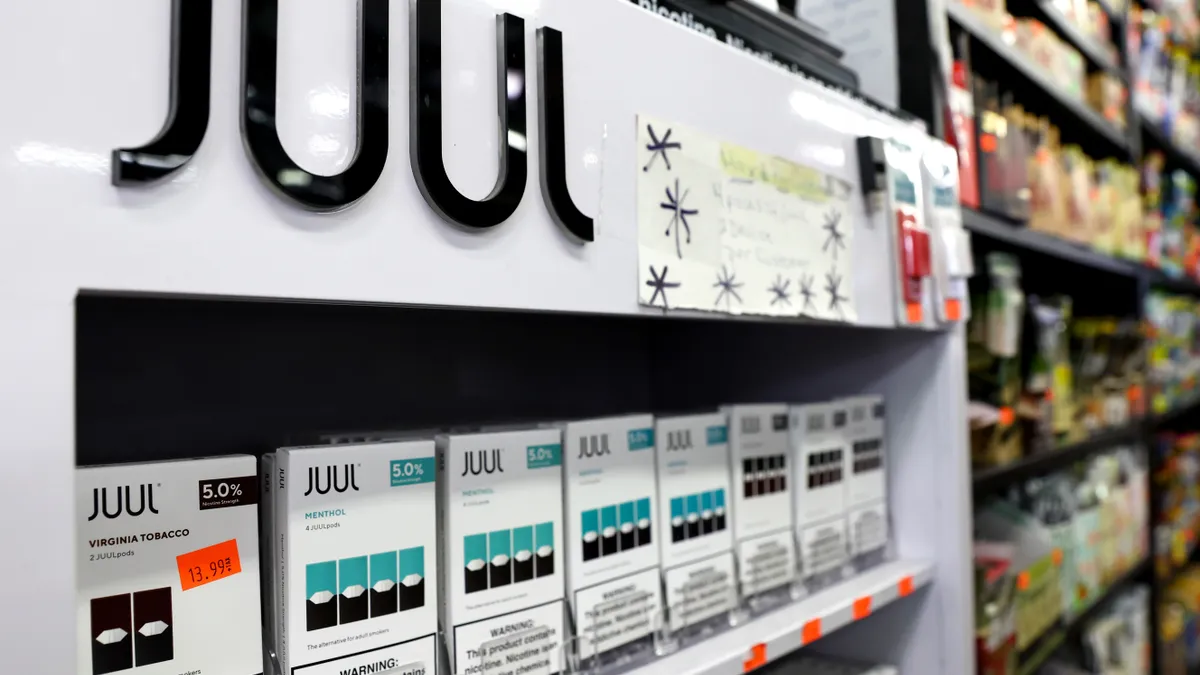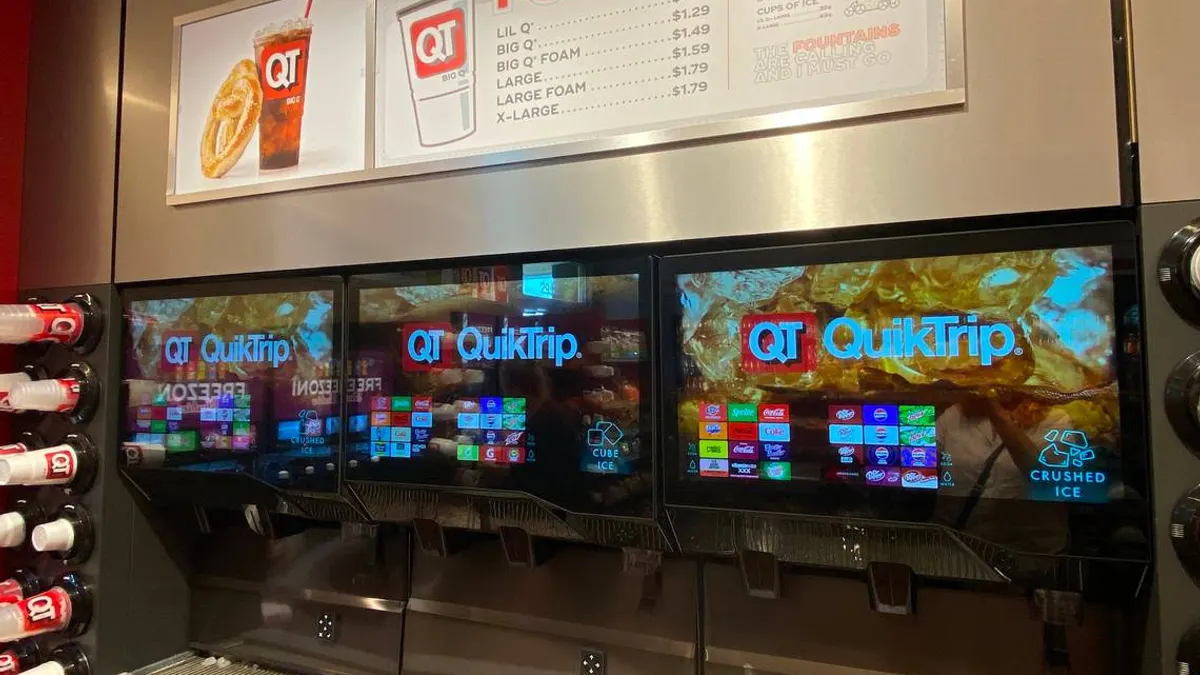Dive Brief:
- E-cigarette maker Juul Labs settled with the plaintiffs in federal multi-district litigation and “Juul Labs Product Cases” that encompassed about 5,000 lawsuits covering more than 10,000 individuals, according to a company press release issued Tuesday.
- The consolidated settlement reached in the U.S. District Court for the Northern District of California requires the San Francisco-based company to make payouts to states and territories as well as change parts of its marketing, “including prohibitions on youth marketing and the sale of flavors not authorized by the FDA,” according to a separate press release.
- This settlement comes as Juul is pursuing its own lawsuit against the U.S. Food and Drug Administration to force it to re-evaluate its marketing denial order based on what Juul called “substantive and procedural errors.”
Dive Insight:
The dollar amount of the settlement was not released, though Juul noted it secured outside funding to help cover the payout.
The resolution includes money to compensate plaintiffs who suffered nicotine addiction and other harmful effects, a class-action settlement to pay consumers back for their Juul purchases, a government settlement to fund anti-youth-smoking education in schools and cities, and a separate settlement to do the same for affected tribal areas, the press release from Lieff Cabraser Heimann & Bernstein, which served as co-lead counsel for the plaintiffs, stated.
Tuesday’s announcement is the latest in a series of settlements Juul has made with states and other territories over an array of charges, including that it marketed its products to minors. These included a settlement with 34 states and Puerto Rico in September, one with Washington State in April and one with Arizona in November 2021.
This is not the last of the lawsuits against Juul. The company said in its press release that it is still working to resolve the remaining cases.
At the same time, Juul is dealing with fallout from the FDA’s marketing ban issued in late June. The ban was put on hold in early July, as the FDA said it would re-evaluate the application. Juul then requested documents related to the ban order under the Freedom of Information act, and when those documents were not turned over it sued for their release.
Despite the cloud hanging over it, Juul remains one of the top e-cigarette companies in the U.S. Juul and e-cigarette competitor Vuse both have about a third of the U.S. market, according to Nielsen data reported in April by the Winston-Salem Journal.







